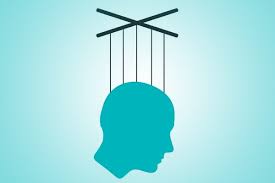Alessandra Buccella and Tomáš Dominik
Scientific American
Originally posted January 16, 2023
Here is an excerpt:
In 2019 neuroscientists Uri Maoz, Liad Mudrik and their colleagues investigated that idea. They presented participants with a choice of two nonprofit organizations to which they could donate $1,000. People could indicate their preferred organization by pressing the left or right button. In some cases, participants knew that their choice mattered because the button would determine which organization would receive the full $1,000. In other cases, people knowingly made meaningless choices because they were told that both organizations would receive $500 regardless of their selection. The results were somewhat surprising. Meaningless choices were preceded by a readiness potential, just as in previous experiments. Meaningful choices were not, however. When we care about a decision and its outcome, our brain appears to behave differently than when a decision is arbitrary.
Even more interesting is the fact that ordinary people’s intuitions about free will and decision-making do not seem consistent with these findings. Some of our colleagues, including Maoz and neuroscientist Jake Gavenas, recently published the results of a large survey, with more than 600 respondents, in which they asked people to rate how “free” various choices made by others seemed. Their ratings suggested that people do not recognize that the brain may handle meaningful choices in a different way from more arbitrary or meaningless ones. People tend, in other words, to imagine all their choices—from which sock to put on first to where to spend a vacation—as equally “free,” even though neuroscience suggests otherwise.
What this tells us is that free will may exist, but it may not operate in the way we intuitively imagine. In the same vein, there is a second intuition that must be addressed to understand studies of volition. When experiments have found that brain activity, such as the readiness potential, precedes the conscious intention to act, some people have jumped to the conclusion that they are “not in charge.” They do not have free will, they reason, because they are somehow subject to their brain activity.
But that assumption misses a broader lesson from neuroscience. “We” are our brain. The combined research makes clear that human beings do have the power to make conscious choices. But that agency and accompanying sense of personal responsibility are not supernatural. They happen in the brain, regardless of whether scientists observe them as clearly as they do a readiness potential.
So there is no “ghost” inside the cerebral machine. But as researchers, we argue that this machinery is so complex, inscrutable and mysterious that popular concepts of “free will” or the “self” remain incredibly useful. They help us think through and imagine—albeit imperfectly—the workings of the mind and brain. As such, they can guide and inspire our investigations in profound ways—provided we continue to question and test these assumptions along the way.









